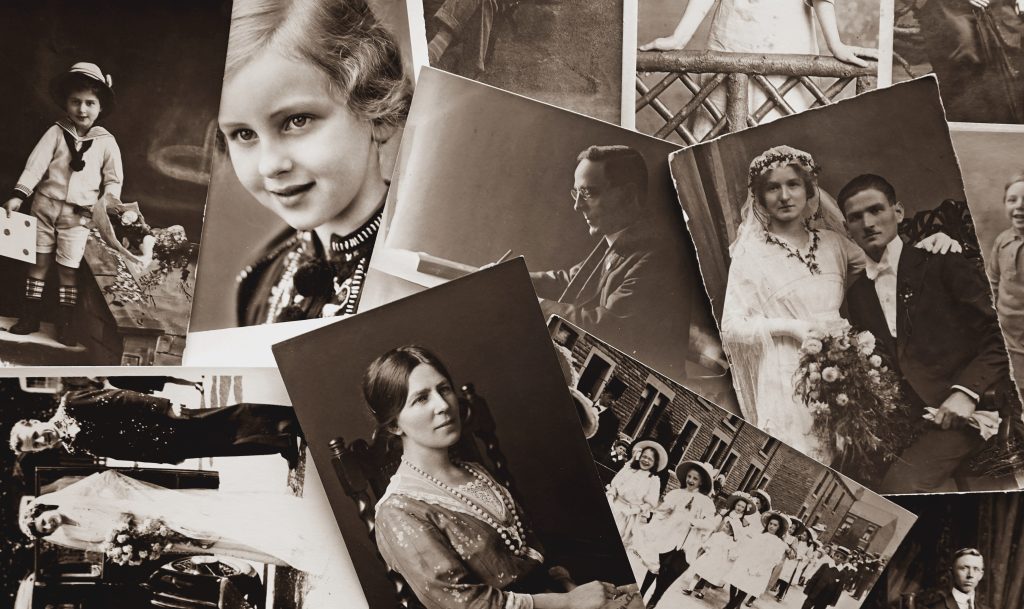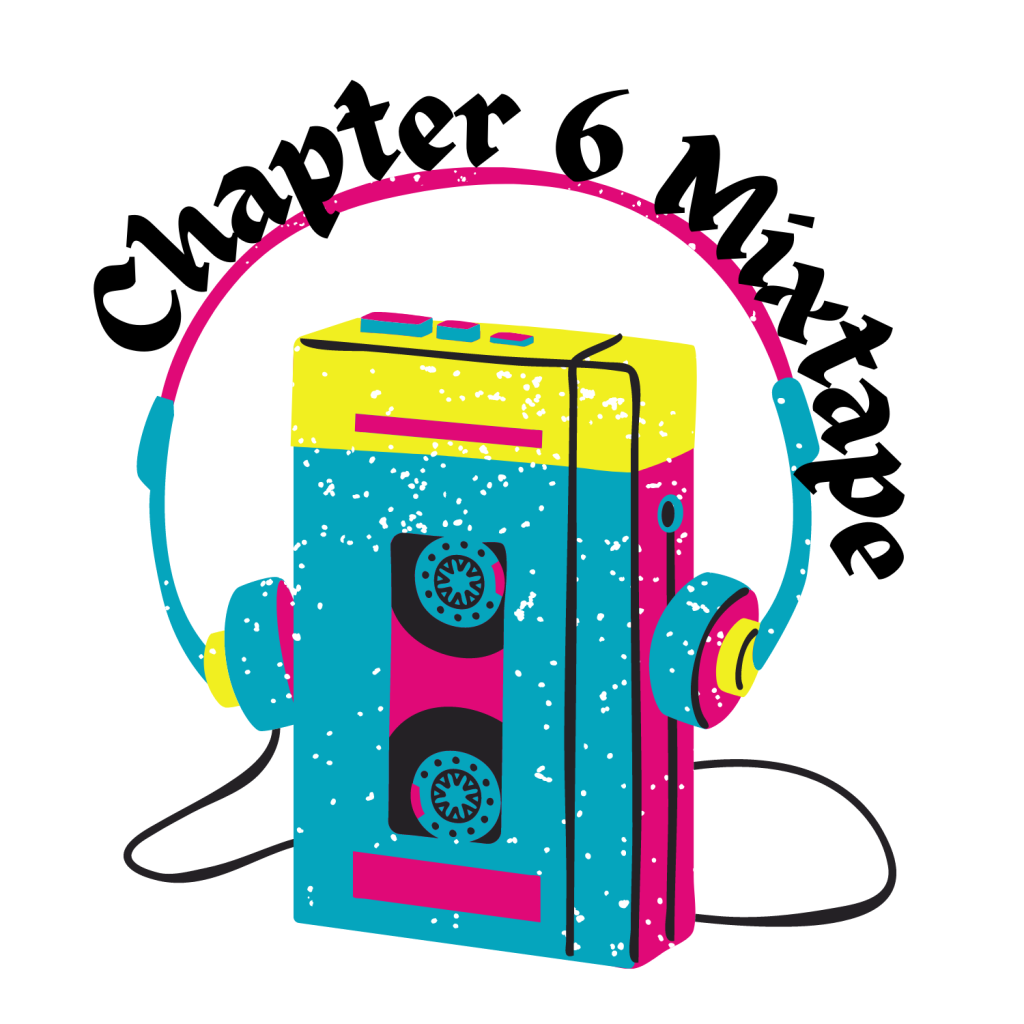6 I’m Still Standing
Meet Alex
After dating for three years, Alex and Nick find themselves navigating a lot of new tensions and drifting apart. Ultimately, they decide to break up. Alex understands that many relationships have a beginning and end, but it’s hard to accept the changes that have come with their separation. For example, Alex became really close with Nick’s family while they were dating, so he feels like the break up has forced him to separate from new-found loved ones in addition to his partner. Similarly, Alex and Nick have many mutual friends, which may make future group hangouts a little awkward now that they aren’t a couple anymore. Alex worries that friends may “pick sides” and isn’t sure how to bring the topic up with those who may have already heard the story about their break up from Nick’s point of view. The whole situation is complicated and he is having trouble figuring out how to cope with all of these new emotions and questions. Can he really move on? Can we at least be friends? Who’s to blame? The sense of loss Alex feels is surprisingly strong even though he knows that Nick will be okay. In order to heal, Alex is trying to relearn who he is and move forward by leaning on good friends, doing some of his favorite activities, and thinking about what he can take away from the relationship … even though he’s still tempted to reach out to Nick and see how he’s feeling about all of this.
Revisiting Identity
If you’ve ever been through a break up with someone you loved or ended a friendship that meant a lot to you, you may have experienced some of the same feelings that Alex described or asked similar questions. As tempting as it may be to ask “Who’s to blame?”, other questions such as “What can I learn from this?” and “How can I heal from this hurt?” may be more helpful. Oftentimes, reflecting on one’s role in the dissolution of the relationship can help one become more self-aware of habits or better understand former relational partners.
First, by briefly revisiting the concept of self from Chapter 2, we are reminded of just how complex our intrapersonal communication patterns, or the ways in which we speak to and think about ourselves internally, can be. Moving from the previous chapter into this one, we focus on the healing process following change or loss and its impact on the self. Relational change or loss can be complicated. Fortunately, there are ways to make sense of self-love, self-care, and healing in our interpersonal relationships. In this chapter, you will learn how to differentiate between self-care and self-love, and what research says about healing from heartbreak and relational loss through a communication studies lens.
6.1 Self-Care vs. Self-Love
Self-care, which is the process of establishing behaviors that promote a comprehensive, lasting sense of wellbeing, is necessary for quality intrapersonal and interpersonal relationships. Self-care behaviors can include anything from consuming balanced meals or participating in fun and/or mindful movement to getting quality sleep or relaxing after a busy day. Sometimes self-care may be as simple as implementing a nightly skincare routine, while more involved efforts may include getting a haircut or making time to speak with a therapist or counselor.
Contrary to popular belief, self-care does not need to be an isolating activity performed in private. Having a supportive community that encourages one to prioritize self-care or provides spaces to share in quality time or conversation is essential for sustainable self-care. For example, if you want to make sure that your body gets some daily movement, you might enjoy taking a walk around the neighborhood with a friend. In this way, you are both caring for yourselves and making sure the other person is feeling and doing well, too. By encouraging us to check in with ourselves, self-care can help us consider our identities, behaviors, needs, and hopes. If you are aware of how you are doing at a given moment, the likelihood that you will be able to fruitfully engage with your loved ones, neighbors, and colleagues is higher.

Sometimes practicing mindfulness in a guided setting can be very helpful. Have you ever participated in a guided breathing exercise or taken a yoga class? How did it make you feel?
A Simple Breathing Exercise
- Find a comfortable place to sit or lay down.
- Relax your shoulders and jaw.
- Breathe in through your nose for a count of 4.
- Hold your breath for a count of 2.
- Breathe out through your mouth for a count of 6.
- Repeat several times while being mindful of how you feel.
Factors Impacting Self-Care
As important as it is—especially when you are healing from relational loss—self-care is not always easy. Some people experience additional barriers to self-care, such as coping with a chronic illness (see Baumann & Dang, 2012), and may find it difficult to find time and energy to devote to intrapersonal self-care. If one is experiencing high stress, anxiety, fatigue, and/or depression, the motivation to engage in self-care can be low even though it is likely that taking the time to practice self-care behaviors could improve some of the situational factors at hand.
Other barriers to self-care may include feeling a strong need to conform to traditional gender roles (i.e., a mother may forfeit self-care in order to care for her children and partner and run out of time and/or resources to care for herself), a lack of support from others, having irregular access to basic resources such as a safe place to live and balanced meals (or none at all), or a fear of seeking help from health professionals (i.e., avoiding mental health care due to fears or stigmas) and/or no funds to pay for care. External barriers such as these may also be compounded by internal value systems and cultural beliefs, such as caring for others before yourself in every situation or placing an emphasis on independence to the point that asking for help is viewed as weakness. If you feel like you or a loved one are experiencing these barriers to self-care, try to start small by making sure that every day has some balance of solitude or rest and work/activity, make time for social interactions, and don’t be afraid to ask for help if you aren’t sure of where to start.

Can you recall a time when you tried to encourage a friend or loved one to make time for self-care? What was your approach?
Self-Love
Similar to the concept of self-care, self-love refers to one’s belief in one’s worth and right to happiness and equity. Though self-love may be wrongly confused with vanity or selfishness, it reflects a recurring theme of many positive social movements and societal shifts towards prioritizing mental and emotional wellbeing in addition to physical wellbeing. Erich Fromm (1939), a German philosopher who specialized in the sociology and psychology of love, famously argued that self-love protects us from narcissism and selfishness by reminding us to affirm the humanity and worth of ourselves as we should affirm that of others. By knowing and respecting ourselves, we become more capable of embracing others and allowing them to embrace us back.
A balance of self-care—mental, physical, and emotional—and self-love positions us for a more effective intrapersonal dialogue, allowing us to see a more holistic picture of ourselves and where we are heading. Further, it equips us to be better relational partners who are in tune with what they can give to and take from relationships at each unique point in time. Practicing both also prepares us to cope with strong and/or uncomfortable emotions, illness, trauma, grief, and losses of various kinds.
Reflection Questions
What are some ways that you engage (or could engage) in self-care?
In what ways do you think self-love has helped (or could help) you navigate difficult relational situations?
6.2 Grief
Sometimes our relationships are disrupted or halted by events that cause us to grieve. According to Gravesen and Birkelund (2021), grief is a “vulnerable and painful state” triggered by the loss of a loved one (p. 1). The grief associated with death is familiar to most people, but individuals grieve many other types of losses throughout their lives, such as job loss, regrets about missed opportunities, or even the end of a relationship. Loss can be grouped into two categories: physical loss or abstract loss. Physical loss is related to something that one can—or can no longer—touch or measure, such as loss related to the death of a loved one. Abstract loss is related more closely to aspects of a person’s social interactions and sense of character, and its source may be significantly harder to pinpoint (i.e., feeling like you missed out on the “fun” part of your childhood). Healing after loss can be difficult, but after sitting with our feelings for a bit, we may find it helpful to engage in certain coping behaviors.
Healthy Coping Behaviors Following Loss
One intra- and interpersonal method for coping with grief that may surprise you is the use of humor to make sense of loss. According to a survey of 484 adults by Booth-Butterfield et al. (2014), having a predisposition for humor is related to more effective coping in grieving situations; in short, humor can be helpful in the reduction of negative grief symptoms. Humor—when used appropriately and at the right time—can remind us of fond memories of those we have lost and help us remember that new bright moments are yet to come. Another coping mechanism that you can do alone or with others who are grieving is to revisit happy memories with your lost relational partner by journaling about or looking at pictures of happy times together (Sparks, 2014).

Pictures are a great way to look back on memories of good times with loved ones. Some people make scrapbooks or photo albums for this reason. How do you preserve happy memories of the past?
Other methods, such as seeking individual or group therapy opportunities designed for folks who are grieving may also be an effective coping strategy. Sometimes, all we need is for someone to empathize with us and our experiences. In cases where community support groups extend our networks to include more people, our potential to connect with someone who “gets it” grows. Though you never have to share your grief with someone, bearing it alone can be overwhelming and slow the healing process. Don’t be afraid to ask for help from someone you know or a trusted resource—your mental, emotional, spiritual and physical health matter.
6.3 Growth Through Healing
Who am I now?
When a relationship ends, we might find ourselves in a state of confusion and questioning what our identity looks like now that the person we lost is no longer in the picture. When someone is no longer in our lives, sometimes we end up taking on their roles and responsibilities in their absence. As author Chimamanda Ngozi Adichie (2021) wrote following her father’s unexpected passing, “It does not matter whether I want to be changed, because I am changed” (p. 66). This change—on top of grief—can be daunting. However, self-care and self-love behaviors combined with healthy coping behaviors can help us relearn ourselves and revisit the identities that persist through troubled times.
What did I learn?
Even when the end of a relationship hurts, we can use the healing process to grow and learn. If a relationship ended terribly, one can reflect on their role in the break-up and what their partner may or may not have done to meet their needs. This process prompts us to ask hard questions, such as “If I had listened more, would things be different?” or “I deserved better … what should I look for in a new friend/partner?”. In cases where someone we loved has passed away, we can look for opportunities to honor their memory, learn from their lives and decisions, and decide how their experience relates to our own in positive and negative ways.
Growing Into New, Exciting Opportunities
Though change can sometimes make us nervous about the future, it offers us an opportunity to try new things, think differently about our daily lives, and understand others more effectively. As time goes on, we become familiar with the world as it seems after change; we can be surprisingly resilient. The previous chapter discussed the process of a relationship growing apart. This chapter reminded us of how we can cope with the loss of a relationship and other kinds of grief. In the next chapter, we will discuss the dark side of personal relationships, which combines the lessons about relational dissolution from chapter 5 and the coping strategies from chapter 6. Start thinking about how the ways we cope with loss may be similar to or different from the ways we cope with rifts or tensions in an ongoing relationship.
Closing Questions
Can you remember a difficult change in your life that taught you something?
Think of a colleague, friend, or loved-one who has gone through a hard time; how did you help them cope?
What are three things you learned about the role of grief in interpersonal relationships while reading this chapter?
The Chapter 6 Mixtape
-
-
-
-
Fleetwood Mac – “Don’t Stop”
-
Peter Gabriel – “Solsbury Hill”
-
Cat Stevens – “Peace Train”
-
Fleetwood Mac – “Landslide”
-
Billy Joel – “Movin’ Out (Anthony’s Song)”
-
-
-
Chapter References
Adichie, C. N. (2021). Notes on grief. Alfred A. Knopf.
Baumann, L. C., & Dang, T. T. N. (2012). Helping patients with chronic conditions overcome barriers to self-care. The Nurse Practitioner, 37(3), 32-38. https://doi.org/10.1097/01.NPR.0000411104.12617.64
Booth-Butterfield, M., Wanzer, M. B., Weil, N., & Krezmien, E. (2014). Communication of humor during bereavement: Intrapersonal and interpersonal emotion management strategies. Communication Quarterly, 62(4), 436-454. https://doi.org/10.1080/01463373.2014.922487
Fromm, E. (1939). Selfishness and self-love. William Alanson White Psychiatric Foundation.
Gravesen, J. D., & Birkelund, R. (2021). The discursive transformation of grief throughout history. Nursing Philosophy, 22(3), e12351. https://doi.org/10.1111/nup.12351
Sparks, D. (2014, December 17). 7 steps for managing grief and loss. Mayo Clinic News Network. https://newsnetwork.mayoclinic.org/discussion/7-steps-for-managing-grief-and-loss/
The ways in which we speak to and think about ourselves internally.
The process of establishing behaviors that promote a comprehensive, lasting sense of wellbeing.
Believing in your worth and right to happiness and equity.
A “vulnerable and painful state” triggered by loss.
The loss of something that one can—or can no longer—touch or measure.
Loss related to social interactions (or the absence thereof), losing a sense of character, feeling like something is now missing.


